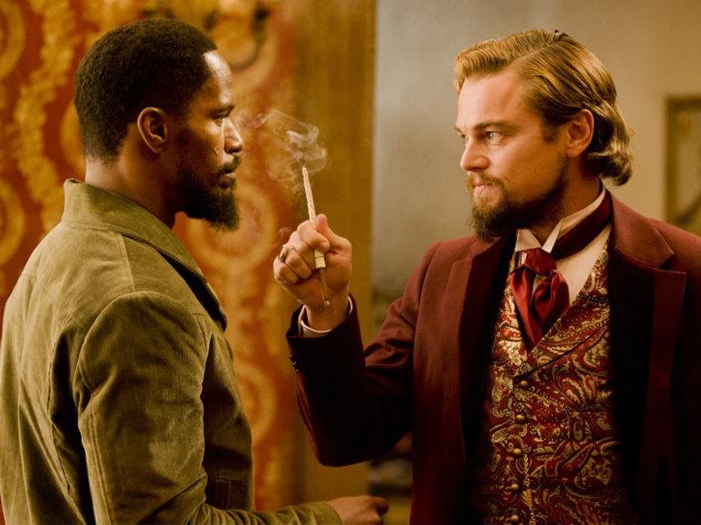With “Django Unchained,” Quentin Tarantino finally comes of age as a filmmaker. Tarantino’s brilliance as a writer and craftsman have always been clear.
But even his last picture, the Holocaust revenge fantasy “Inglourious Basterds,” was overwhelmed by his geeky obsession with vintage genres (in that case, old war movies). When he showed us a group of Jews huddled in a basement being shot through the floorboards above, but declined to go below and show them actually dying (it might have clouded the film’s comedy), he shortchanged the movie’s putative subject.
With “Django,” the director has brought off a perfect marriage of style and history. He has appropriated the universe of another beloved genre, the spaghetti western (in particular Sergio Corbucci’s brutal 1966 cult film, “Django”), and set within it an unsparing tale of American slavery. The movie is outrageously funny, but it’s also unflinchingly committed to a full exploration of the horrors of its subject. Where many movies about black bondage are diluted by liberal hankie-wringing, this one feels fueled by a black rage that still simmers today. It might be the most savage cinematic depiction of slavery ever made.
Some early reviewers have expressed dismay about the movie’s extensive deployment of the word “nigger.” (“It’s a nigger on a horse,” says one marveling cretin as a black man rides by on his mount.) It’s hard to know what to say about such a reaction, except to point out that, hey, it’s a movie about slavery.
Read the full review at Reason.com.

COMMENTS
Please let us know if you're having issues with commenting.